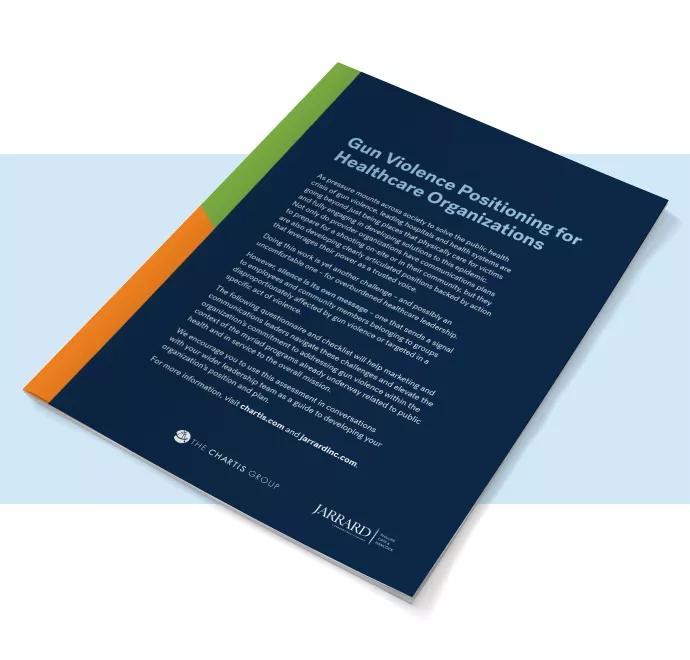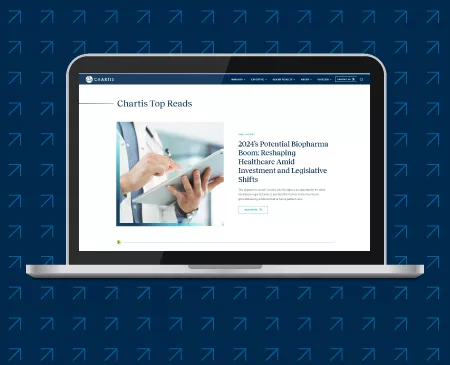Addressing the Gun Violence Epidemic
There can be no mistake. Gun violence in the United States is a public health crisis of devastating magnitude. It is a cascading epidemic resulting in loss of life, loss of livelihood, and enduring individual and community trauma.
The statistics are staggering:
-
The rate of firearm-related deaths among children, adolescents, and young adults has increased 50% between 2019 and 2021, and now surpasses motor vehicle injuries as the most common cause of death from injury. The U.S. is the only Organization for Economic Co-operation and Development (OECD) peer country where firearms are in the top 4 causes of mortality among children.1
- In 2021, more than 48,000 Americans died from a gun—a 23% increase over 2019, and a 50% increase over 2010.2
- 85,000 Americans are gun violence survivors each year—carrying wounds and trauma that cannot be easily empirically measured.3
- There is a greater impact on communities of color. Black Americans experience 10 times the gun homicides, 18 times the gun assault injuries, and nearly 3 times the fatal shootings by police of white Americans. Women of color are significantly more likely to be victims of firearms homicide than white women.4
Healthcare providers experience the impact of gun violence every day, both acutely in caring for the injured and longer term as they address the psychological sequelae of the experience of violence on patients and their families, communities, and the care providers who treat the victims. Leaders of many health systems and professional organizations across the country have made a public declaration that gun violence is a public health emergency and have called for concerted efforts to address this scourge.
We recognize the enormity of the challenge we face as a society and that there are many systemic factors outside the purview of healthcare organizations that contribute to this epidemic. However, healthcare organizations can play a critical role in shedding light on the problem and serving as community resources to identify and support the changes required. We’ve curated this collection of industry-leading resources to help healthcare organizations as they facilitate that work.

Communications Toolkit: Gun Violence Positioning for Provider Organizations
Hospitals and health systems must go beyond being a place to physically care for victims and be fully engaged in developing solutions to this epidemic. While this public health issue can seem too extensive or political to engage with, our gun violence positioning resource for healthcare providers can help you clearly articulate your organization's point of view.
Resources
Sources
1. Lee, Lois K., MD, Katharine Douglas, MD, and David Hemenway, PhD, “Crossing Lines—A Change in the Leading Cause of Death Among U.S. Children,” New England Journal of Medicine, April 21, 2022, https://www.nejm.org/doi/pdf/10.1056/NEJMp2200169.
Matt McGough et al, “Child and Teen Firearm Mortality in the U.S. and Peer Countries,” KFF, July 8, 2022, https://www.kff.org/global-health-policy/issue-brief/child-and-teen-firearm-mortality-in-the-u-s-and-peer-countries/
2. Gramlich, John, “What the Data Says About Gun Deaths in the U.S.,” Pew Research Center, April 26, 2023, https://www.pewresearch.org/short-reads/2023/04/26/what-the-data-says-about-gun-deaths-in-the-u-s/
3. Everytown, “When the Shooting Stops: The Impact of Gun Violence on Survivors in America,” Feb. 3, 2022, https://everytownresearch.org/report/the-impact-of-gun-violence-on-survivors-in-america/.
4. The Educational Fund to Stop Gun Violence and the Coalition to Stop Gun Violence, “A Public Health Crisis Decades in the Making: A Review of 2019 CDC Gun Mortality Data,” Feb. 2021, https://efsgv.org/wp-content/uploads/2019CDCdata.pdf.
Everytown Gun Safety, “Impact of Gun Violence on Black Americans,” accessed May 1, 2023, https://www.everytown.org/issues/gun-violence-black-americans/.
Related Insights




